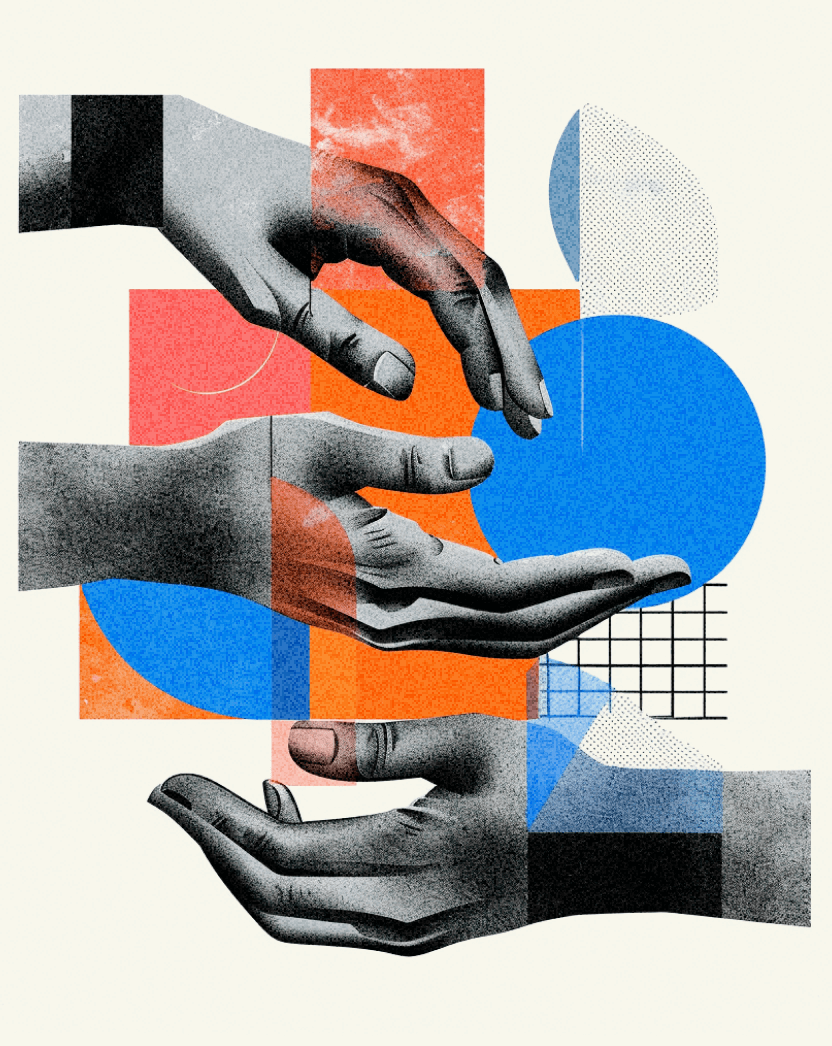Case Study — The Food Group
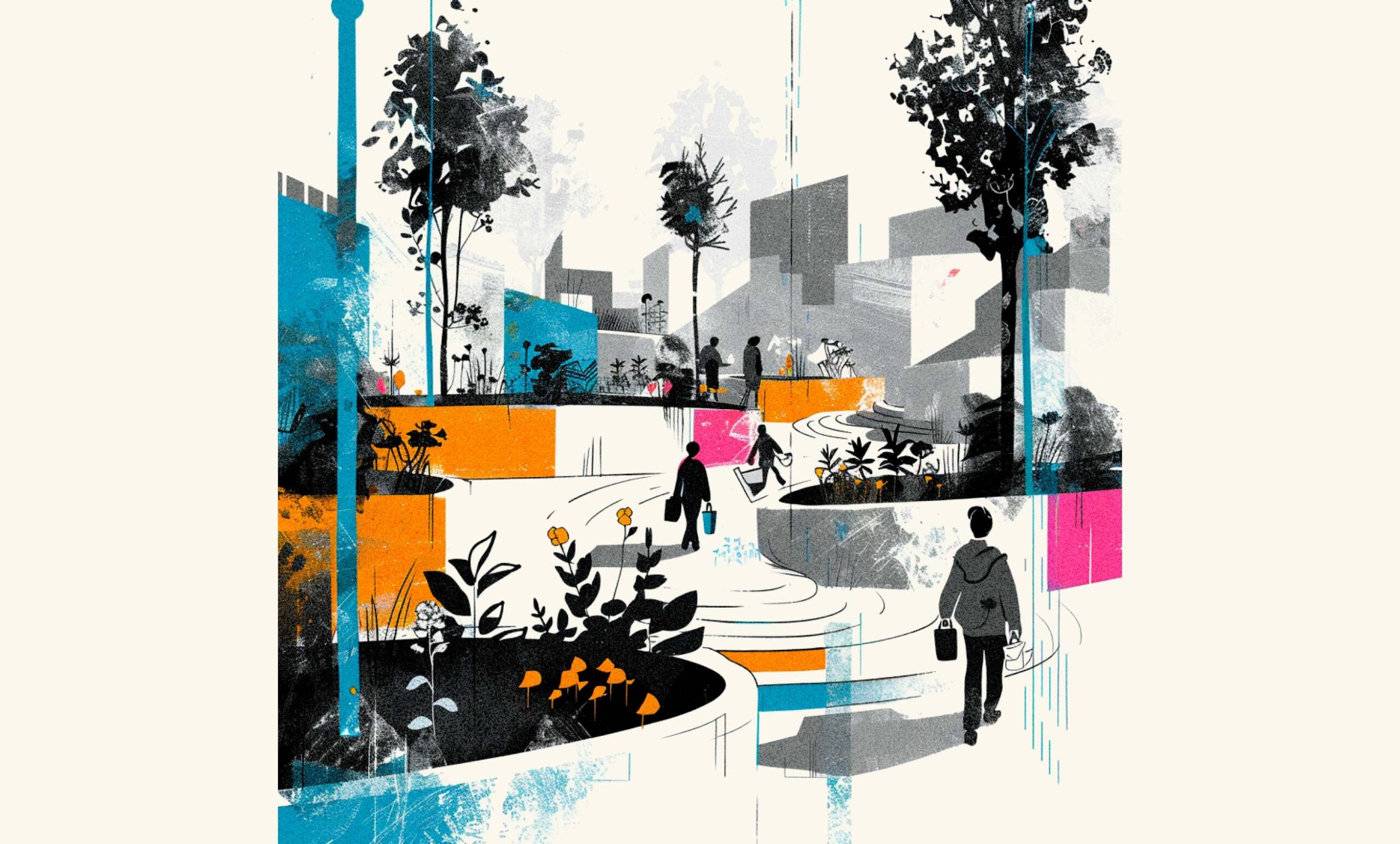
Overview
Community-Driven Approaches for Long-Term Impact in Food Systems
In October 2022, the food justice non-profit, The Food Group had expanded their reach. With over 250 partners, serving over 180 food shelves and meal programs, providing over 6 million meals to people across 30+ counties in Minnesota and Wisconsin, and enrolling 45 farmers in their emerging farmers program, The Food Group’s ongoing efforts had doubled in size.
As the effects of the pandemic continued to ripple into the economy, the need for equitable food systems had never been greater. Dedicated to improve access to healthy food for all Minnesotan residents, The Food Group sought new strategies to tap into the genius of their communities.
The Food Group turned to Imagine Deliver to explore more ways to reach people, listen deeply to their needs, and channel these insights into an innovative multi-year strategic direction to meet affordable grocery shoppers, food shelf partners, and Black, Indigenous, and farmers of color where they are.
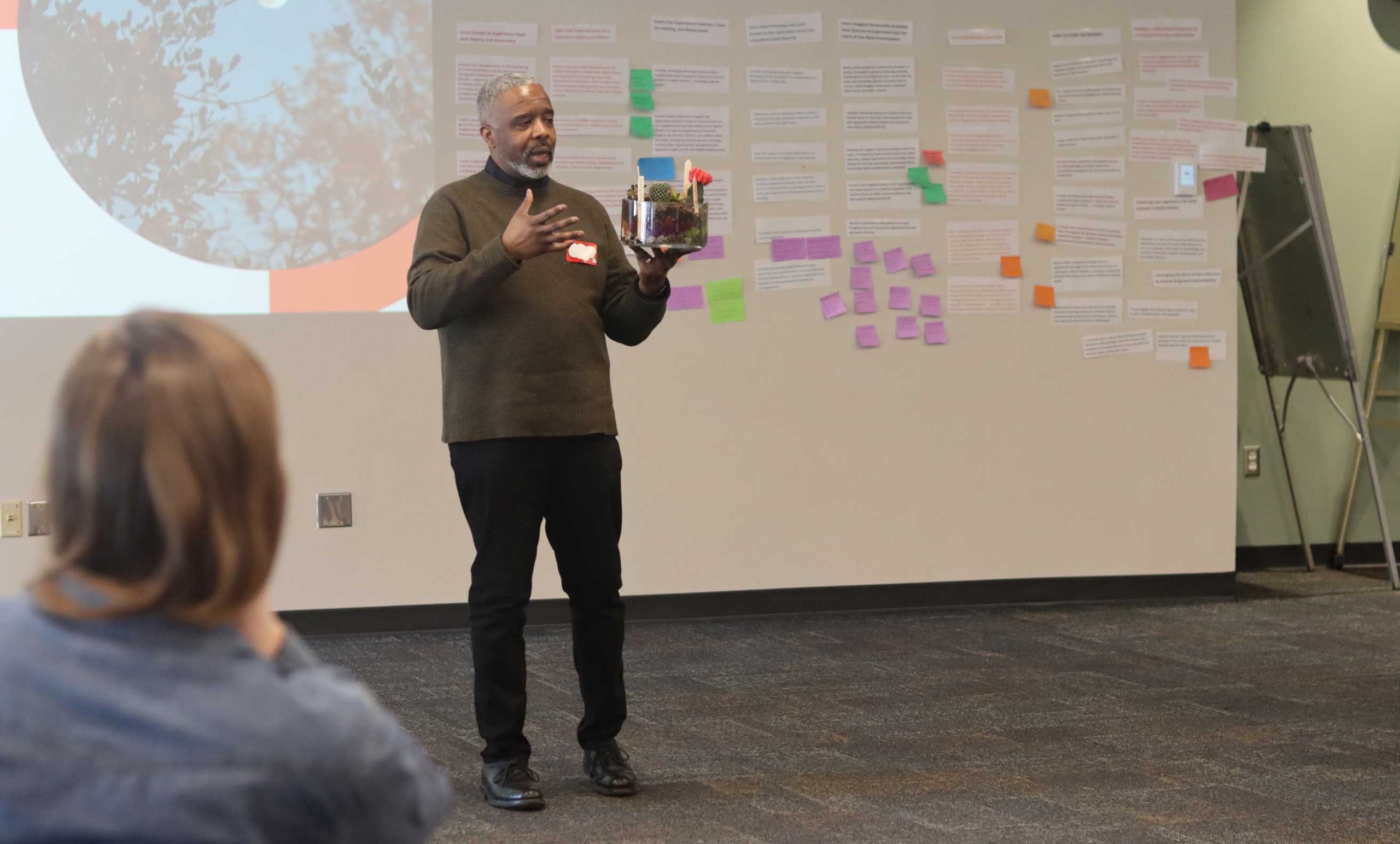
OBJECTIVE
Activate Connections for Resilient Social Systems
In this project, we aimed to deepen the understanding of people experiencing hunger by building connections between users, partners, and volunteers for a more resilient and just food system.
Equipped with our User as Designer™ model, we set out to uncover how affordable grocery shoppers and food shelf users made decisions based on their values, and how innovative farmers using non-traditional techniques to grow food would revolutionize the ways we feed the community.
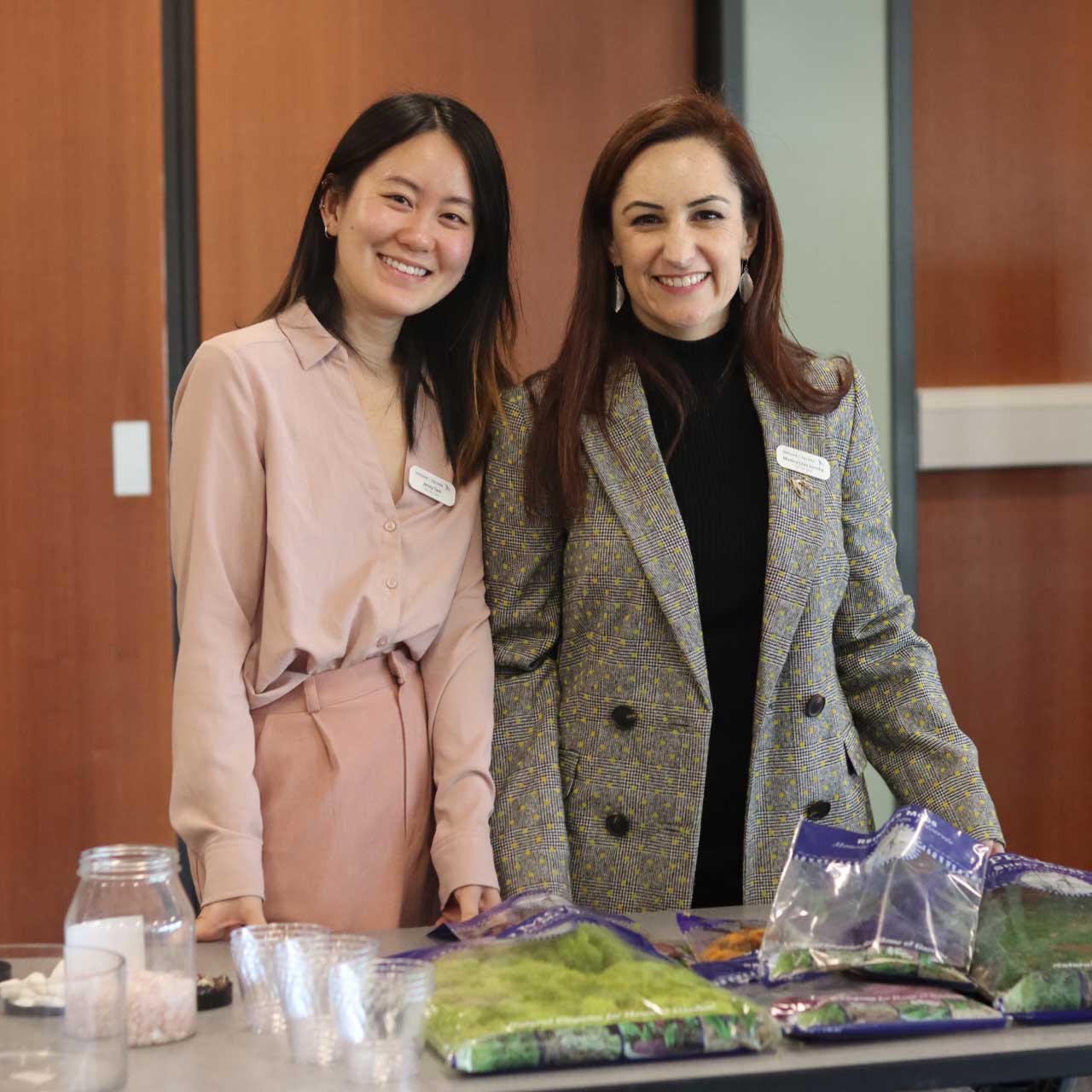
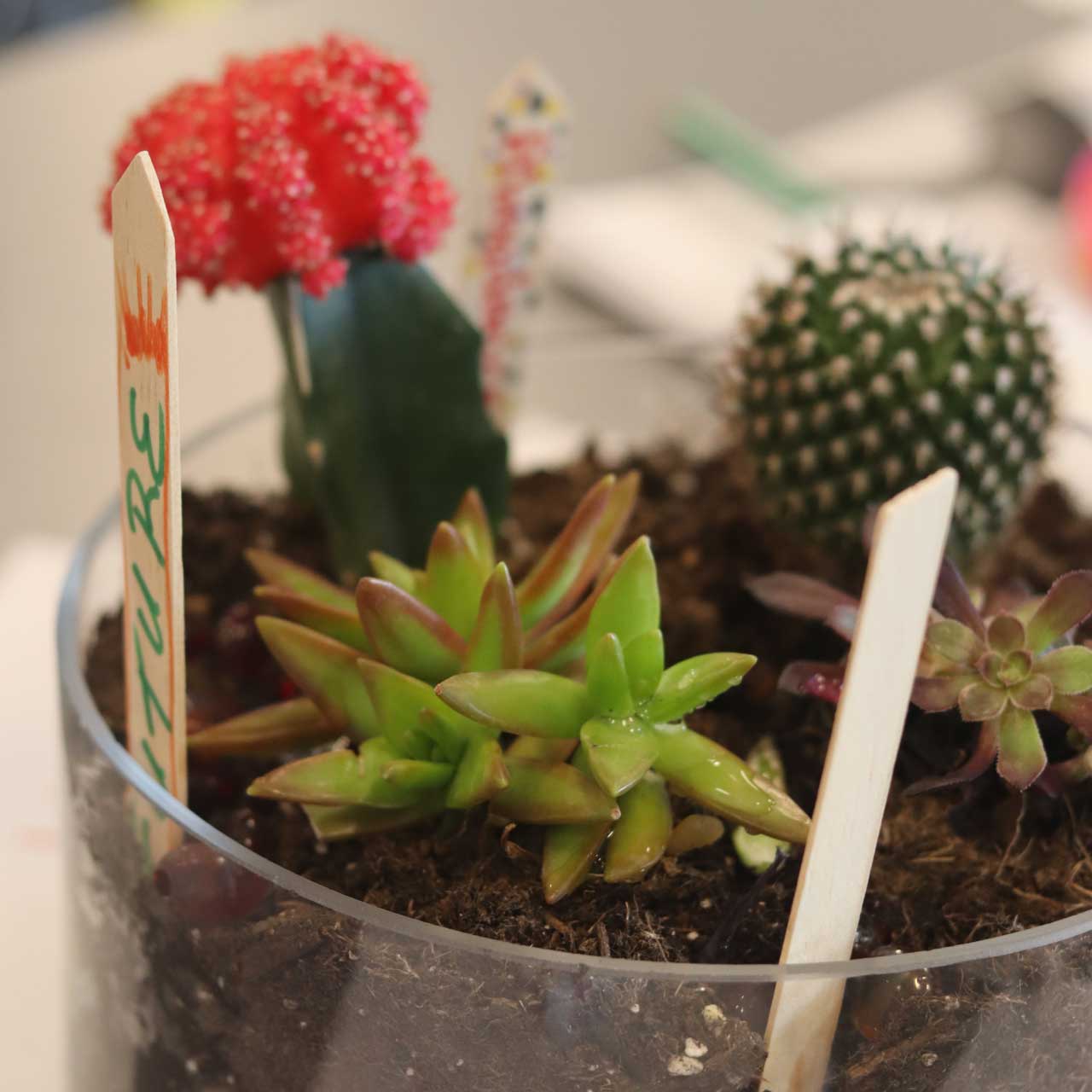
STRATEGY
Seeding Collective Forces for Food Justice
To build and foster resilient practices from the ground up, our team rooted themselves in community genius, cultivating deep curiosity across The Food Group’s complex network of users, staff, and services.
We developed and created an innovative, co-participatory engagement model to employ with The Food Group staff. Using a play-based approach to collecting data using mixed methods, we trained staff in engagement techniques such as art-based surveys, oral interviews, and small group discussion. We guided The Food Group staff as they met with over 400 people in 24 sites over the Minneapolis-Saint Paul metropolitan area. Together, we engaged in deep conversations with people from all walks of life, especially the unique experiences and challenges of Black and brown residents, immigrants, and those with lower incomes.
IMPACT
Connecting People From Farm to Table
Our collaboration was a transformative experience for The Food Group’s staff, who reported feeling invigorated and poised to make a meaningful difference within their community. Our insights catalyzed improvements in The Food Group’s service efforts to welcome communities and improve the experience for farmers using collaborative feedback loops, peer-to-peer connections, and community knowledge sharing.
We opened opportunities for community members to co-create mutually beneficial opportunities for both community members and The Food Group. We advocated including housing and food security as key social health determinants to integrate food and nature into urban planning. Finally, we equipped The Food Group’s staff with a comprehensive set of equitable resources, insights, and training, empowering their team with the tools and confidence to drive change.
Cultivating Throughlines for Food Systems Transformation
Nourished by the power of community networks, we collaborated with The Food Group’s team to chart roadmaps, grounding their efforts fully in community voice using our User as Designer™ model. The Food Group users shared a wealth of information, and our insights report addressed the food experience at all scales — human, infrastructural, and systemic. We fostered unity by establishing deep connections with users, community members, and staff by exploring ways to leverage staff participation in engagement.
Our rich, authentic picture of the community and wealth of actionable recommendations sparked new ideas for The Food Group, encouraging our partners to rethink their impact and foster future initiatives beyond the direct services they provide to people facing hunger.
Tending the Roots of Social Sustainability
Our robust insights report immediately empowered The Food Group leadership to introduce and advocate for policy changes, revitalize its network of services, and build healthy and nourished communities through food. Since our project ended, The Food Group has launched multiple community engagement strategies to deepen their ties and keep a pulse on community needs.
The Food Group staff reported higher levels of connection with farmers and people experiencing food insecurity. They also reported higher feelings of effectiveness in addressing systemic issues in food security. Leaders, in turn, reported feeling energized and excited at the prospect of an ongoing collaboration with end users. Through collective communal effort, we are one step closer to realizing the dream users had of the just and equitable future of food.
“MY DREAM IS TO HAVE A SPACE WHERE WE CAN INVITE LOTS OF PEOPLE TO JOIN US IN GROWING FOOD”
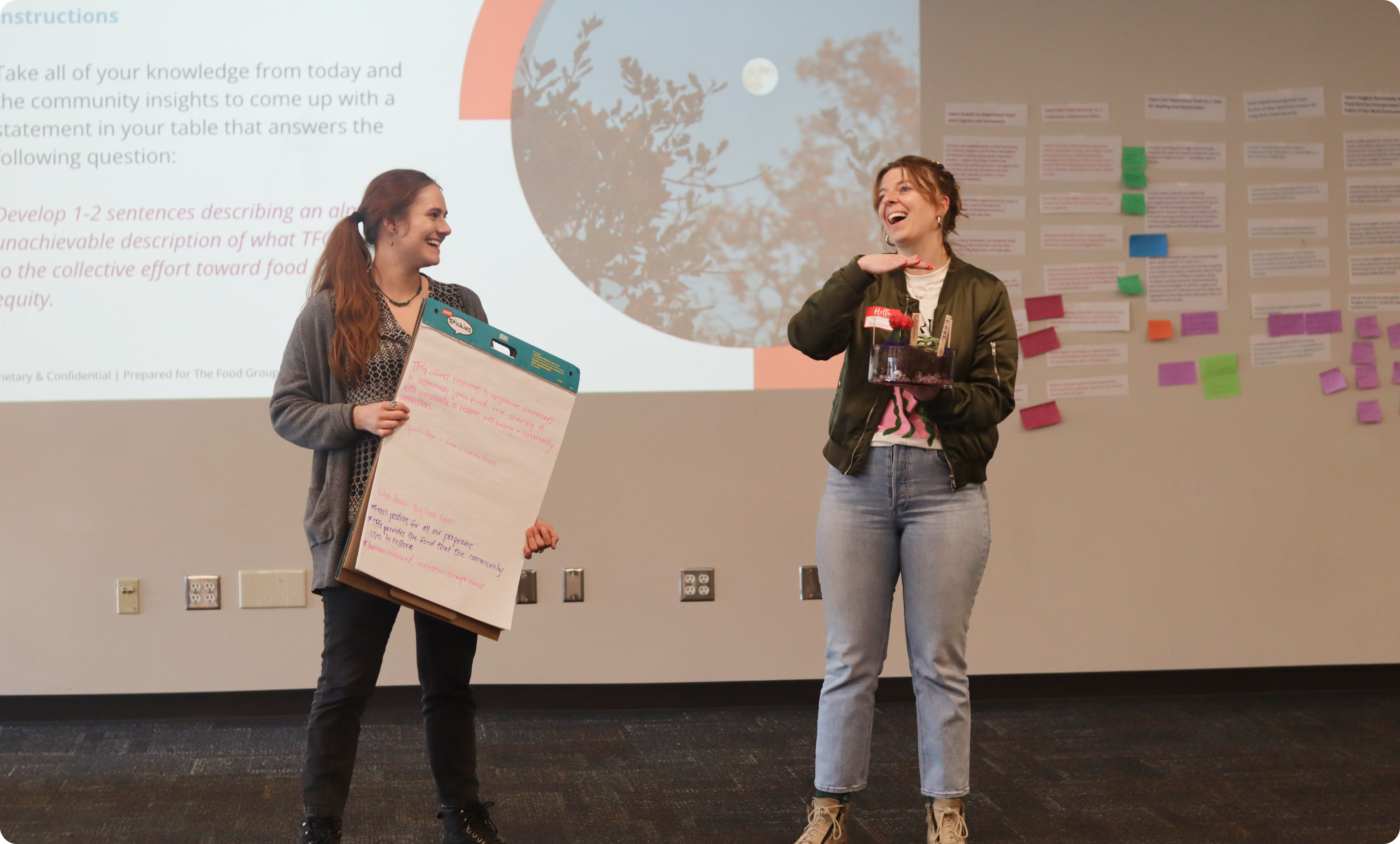
CONCLUSION
Activating Collective Abundance Through User as Designer™ Model
The Food Group’s commitment to advancing food justice for their community was, and has always been, their number one priority. We collaborated successfully with The Food Group, helping them pursue equity within the food justice sector. We provided the necessary tools to enable their staff to be more responsive to the needs of their most important users. With our User as DesignerTM model, we learned from the wisdom of The Food Group’s complex network of users, staff, and services and cultivated strong relationships with donors, volunteers, and partner organizations.
Equipped with our insights, The Food Group is poised to advocate for policy changes and incorporate user-driven decisions, continuing to create sustainable food systems for everyone.
